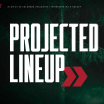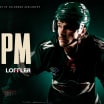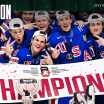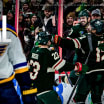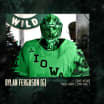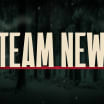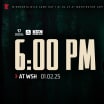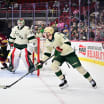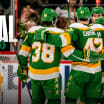Just as a simple yes or no answer does not tell the whole story, getting Tom or Frank Serratore to boil down what hockey in Bemidji and Northern Minnesota means to a single day can be difficult.
That's not how the Serratores work. Talk to the Serratore brothers, who grew up in Coleraine, went to Bemidji State and are longtime coaches of Bemidji State (Tom) and Air Force (Frank) for an instant and their enthusiasm and passion for the game of hockey seeps through.
Both can be beyond animated explaining the game's importance. Each brings in stories, comparisons and characters from packed houses for high school games and a community which prides itself on being outdoors. For Tom, the hockey heroes were not the North Stars players whose games he listened to on the radio but the one at local high schools.
For Serratore brothers, every day is Hockey Day
Lifetime of grassroots, community pucks has shaped Bemidji State, Air Force head coaches
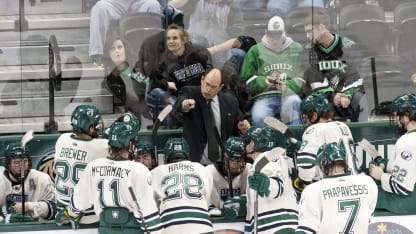
"Let's put it this way. Hockey was a part of the fabric of the culture, it's part of the cultural fabric of Northern Minnesota," said Frank, 61. "When you grow up in a town like we did, Greenway-Coleraine, hockey was really big when I (moved there) because they had just come off winning a couple state (high school) championships (1967 and 1968) a few years before I started playing. When you grew up in a town where your high school sponsored hockey, it was a big deal."
Born seven years apart yet learning the game together at the same time after moving to Coleraine, the brothers are two of several college hockey coaches whose formative years were spent in Northern Minnesota. Minnesota State head coach Mike Hastings hails from Crookston. Minnesota Duluth head coach Scott Sandelin calls Hibbing home.
Hockey Day Minnesota 2019
Former Minnesota head coach Don Lucia, who coached Frank's son (also named Tom), is from down the road in Grand Rapids, while Lucia's longtime assistant Mike Guentzel played high school hockey at Greenway with Tom. Great friends, they played on separate town teams and practiced on different rinks growing up.
"Every one of these little areas (around Greenway) -- some were towns, some were townships -- but they all had an outdoor rink. Wherever you lived, that was the outdoor rink you played on every night. You played town team hockey and then on the weekends you would play for your travel teams," Tom said. "We'd also play town team hockey at the same time and that to me was pure.
"I was more concerned about beating Taconite than I was Grand Rapids in travel hockey. Our competition between our own little communities was intense."
In a town with three outdoor rinks flooded for 900 people plus the one indoor sheet every team practiced on, the ice the Serratores used had no boards. Only the one downtown did. Theirs also doubled as a baseball field in the summer.
"We were out there constantly," Frank said, adding it was a pretty good life. "There was no Internet. There were no video games. Even up north in Northern Minnesota we only had three different (television) channels ... and they came in fuzzy most of the time.
"A big part of our entertainment was activities, playing street hockey and playing on the outdoor rink, playing football and baseball on the sandlot. You'd come home and eat and then you'd go back out, and then you'd come home when the sun went down."
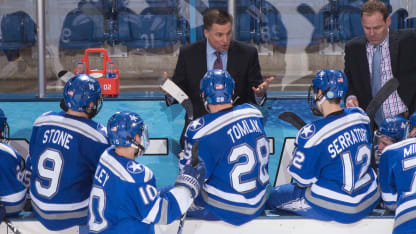
© Air Force Academy Athletics
They each played college hockey at Bemidji State for Bob Peters. The longtime Beavers head coach heavily influenced and inspired the sons of a teacher to go into the coaching field themselves.
Frank said being more of a teacher and understanding the method behind why Peters was running the power play one way helped him understand his calling, whether it was coaching baseball or hockey.
"He was an unbelievable teacher, and he was an unbelievable tactitian. At that time, we were a teacher's college, and pretty much everyone was going into education. A lot of guys went into coaching," said Tom, considering himself fortunate enough to be coaching and raise his family in the area.
Tom eventually took over for Peters at Bemidji State in 2001 as the Beavers transitioned to NCAA Division I. He's been at his alma mater since. Frank, meanwhile, has spent the past 22 years leading Air Force following stops at Denver and the Minnesota Moose.
While there was no sibling rivalry growing up, being two of only 60 Division 1 men's hockey head coaches means there is competition when the two face off. Tom estimates the two have coached against one another more than 30 times over the years, including December 29-30 when Bemidji State visited Air Force.
Want more Wild headlines? [Sign up for e-News]
The two tied 3-3 before Frank and the Falcons took the second game 6-3. Air Force may have the latest win to go with back-to-back NCAA regional final appearances, but as Frank's been reminded, Tom does have the Frozen Four berth (in 2009) his brother lacks.
Regardless, the games were an opportunity to get family together both on and off the ice. A number of siblings and significant others made the trip to Colorado Springs. Tom's son Matt plays for Frank at Air Force but unfortunately missed the series due to injuries.
"We hadn't played against each other much over the last eight or nine years; probably six times. It was a lot of fun," said Tom. "The older we get, you want to enjoy these memories."
He'll have another January 18 when the Beavers spend a Friday night outdoors in an "unbelievable" location on the south shore of Lake Bemidji facing Michigan Tech. Greenway plays the next day as part of Hockey Day Minnesota 2019.
It's a weekend that culminates a year of planning from a town and area where hockey is community owned, giving it back to the next generation.
It won't tell the whole story. It couldn't in one game. It's not that simple. As hockey continues to be part of the cultural and family fabric for the Serratores, the weekend will be another hockey story in a lifetime of them.
"Hockey Day was every day. We lived Hockey Day," said Tom. "It's all about grassroots, and we can all reflect on our memories of playing outdoors. A lot of kids can't. I can't speak for everybody, but to me, the idea and intention of Hockey Day is that these kids who are a part of it, they can live for a day or a particular weekend, they can play a game that we played every night almost."

